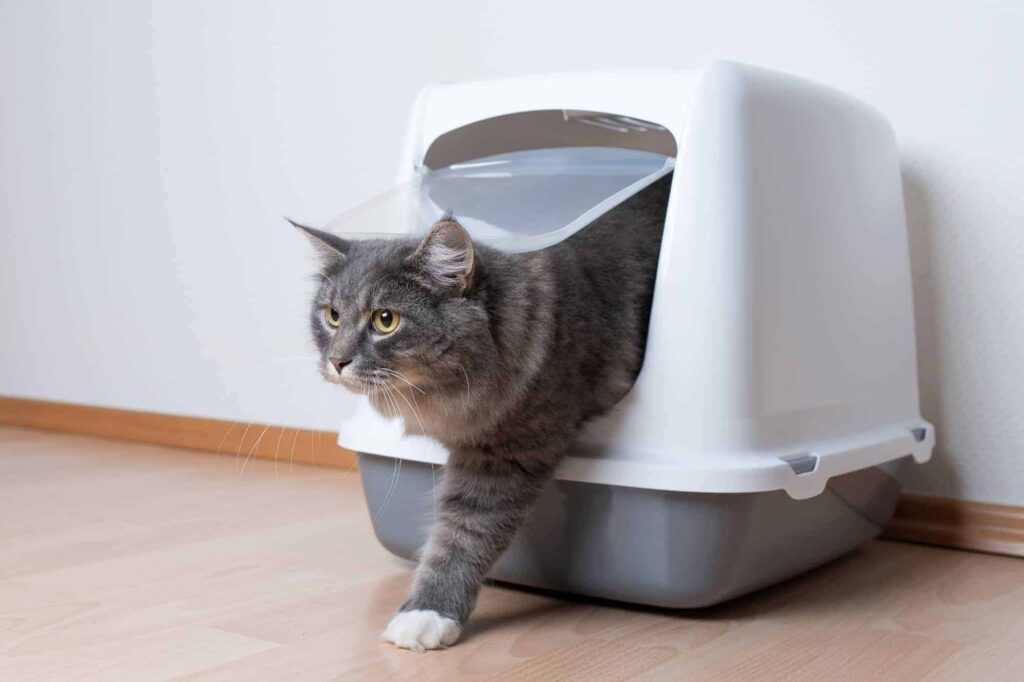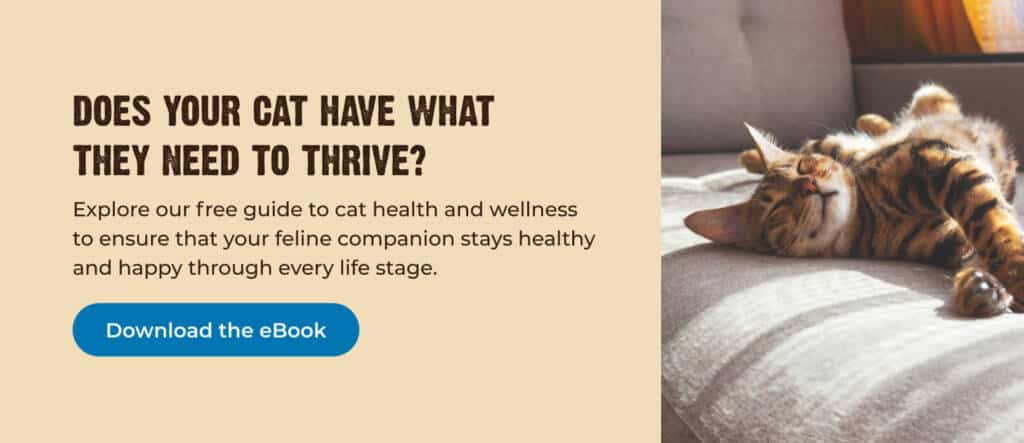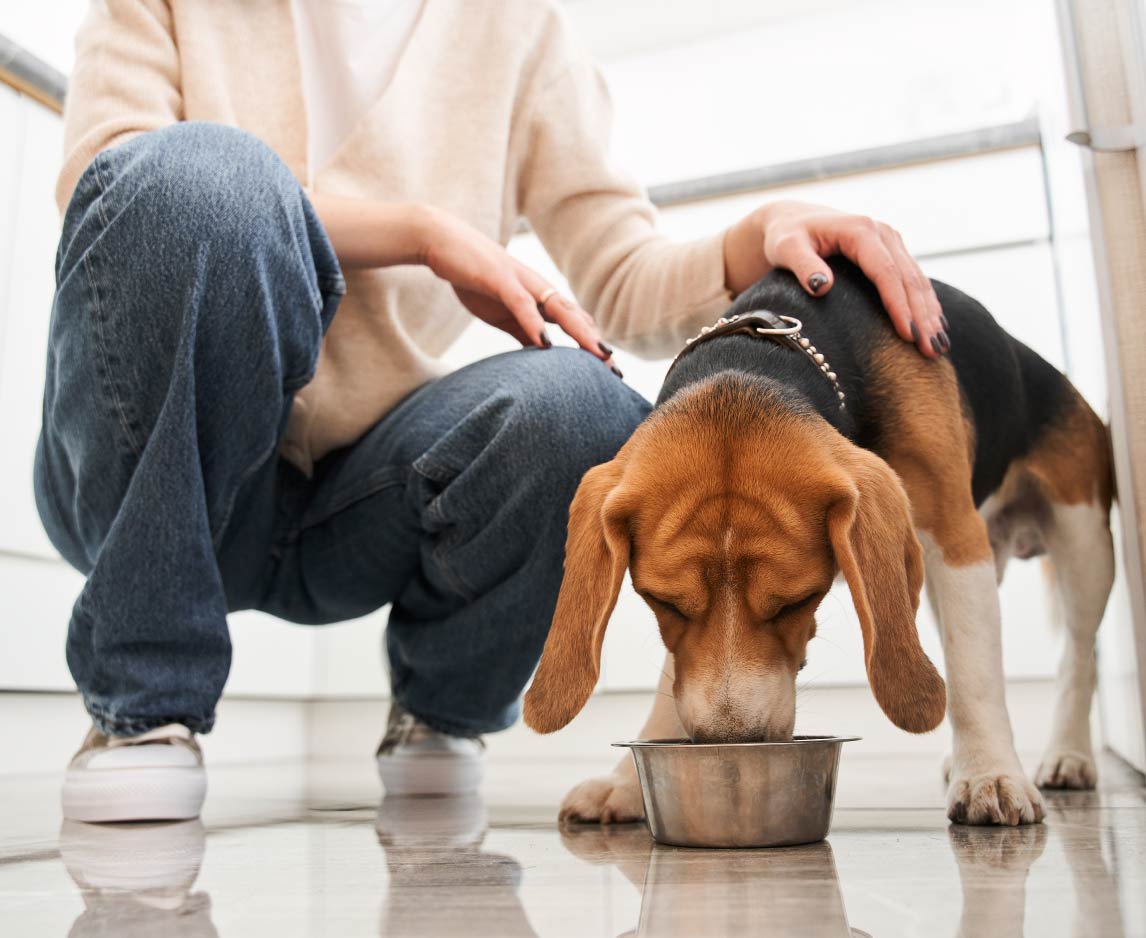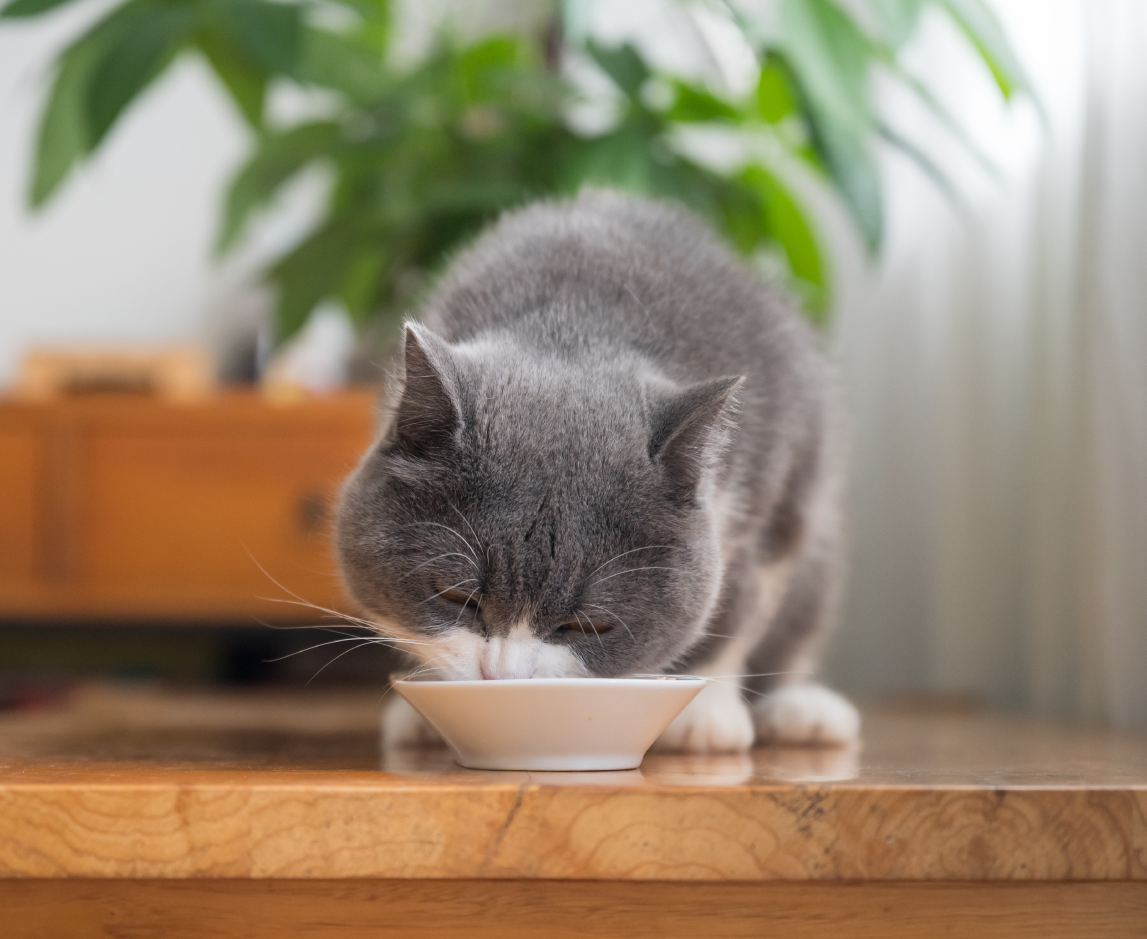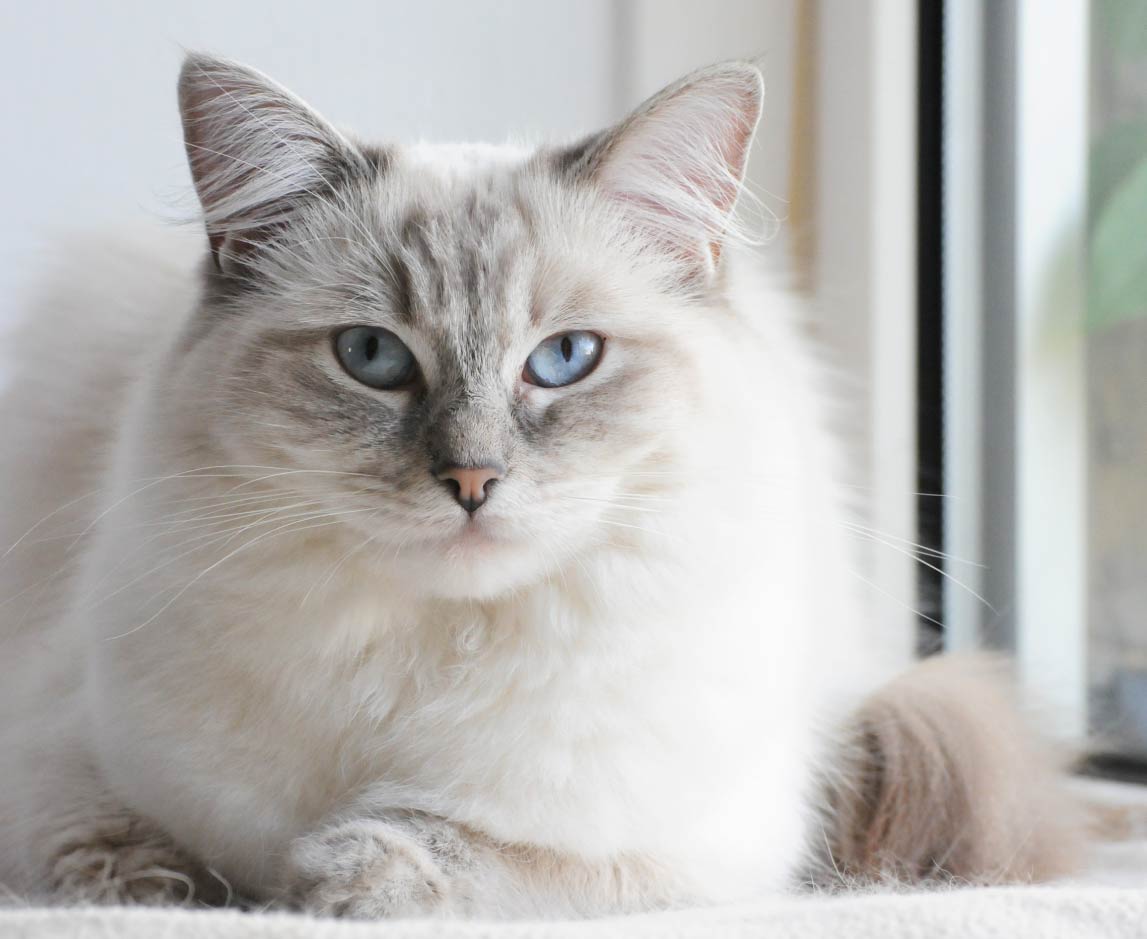If you’ve found your cat straining to urinate, urinating around the house or crying from the litter box, you may have a case of urine crystals or bladder stones on your hands. In addition to causing your cat pain and discomfort, untreated bladder crystals or stones can lead to serious health complications. Read on to learn the causes, symptoms and preventative measures you can take to keep your cat's urine crystal-free.
What Are Cat Urine Crystals (Struvite Stones)?
Urinary crystals are microscopic mineral structures that can occur in feline urine. Sometimes these crystals will accumulate and solidify into stones, called struvite stones. Urinary crystals are made up of minerals — magnesium, phosphate, ammonium, calcium oxalate — that occur naturally in a cat’s body. When these minerals exceed their normal concentration, they can build up and disrupt the cat’s normal urinary function, causing pain, blood in the urine and trouble urinating.
“We don’t know why this process takes place,” says Richard Goldstein, DVM, associate professor of small animal medicine at Cornell University’s College of Veterinary Medicine. “But we’ve observed that it tends to occur frequently in domesticated cats, especially in those that are not very active, don’t take in enough fluids, and don’t urinate enough.”
Armed with the right information, you can help prevent urinary crystals and struvite stones to ensure your cat’s comfort and longevity.
Causes of Cat Urine Crystals
There are several root causes believed to contribute to the buildup of urine crystals and struvite stones in cats. According to Veterinary Centers of America, struvite stones can be caused by the bacteria associated with a urinary tract infection. These bacteria produce a chemical called urease, which can alter the urine’s acidity, leading to the accumulation of crystals and the formation of struvite stones.
If there is no infection present, as Dr. Goldstein says, veterinarians don’t always know why a cat develops urinary crystals or stones. It’s thought that decreased water intake can lead to a higher concentration of minerals in urine, causing crystals to form. Cats have evolved as a species to get the majority of their water from live prey, but this is unrealistic for domestic cats, especially if they’re indoor-only and prefer dry food. If a cat is less inclined to drink water alongside their dry food, there’s less water present in the body to flush out waste, leading to a buildup of toxins and potential health issues.
Symptoms of Crystals in Cat Urine
Since the minerals that make up crystals in a cat’s urine are naturally occurring, urine crystals and stones are fairly common at low levels. While they can be microscopic and pass easily through the urinary tract, they can also grow large enough to cause pain and block the passage of urine. The inability to eliminate toxic waste can be fatal if not treated. Watch your cat for these symptoms, and contact your veterinarian immediately
if your cat:
- Uses the litter box with increasing frequency
- Strains to urinate
- Urinates outside of the litter box
- Experiences painful urination (listen for crying meows)
- Licks genitals excessively
- Has bloody urine
- Has a poor appetite
- Seems lethargic and depressed
It’s been noted that urine crystals and struvite stones occur more often in male cats, since their urethras are narrower than female cats’. Siamese, Himalayan and Persian cats also seem more likely to develop struvite stones, which leads some animal health experts to believe the cause can be genetic.
Diagnosing Cat Urine Crystals/Stones
Diagnosing urine crystals or stones requires a visit to the vet. After obtaining a urine sample from your cat, your veterinarian will order a urinalysis, which may identify:
- Red blood cells: a result of bladder irritation
- White blood cells: the body’s response to inflammation
- Struvite crystals: an accumulation of magnesium, phosphate and ammonium, or a buildup of calcium oxalate
Bladder or struvite stones, which are macroscopic (can be seen without a microscope), are best diagnosed through an X-ray. Your vet may also recommend a blood test to rule out any other medical conditions that may be causing bladder stones to form.
Treating Cat Urine Stones
There are several ways to treat urine crystals and stones in cats.
- Prescription diet: Your vet will prescribe a specially formulated food that alters the chemical composition of your cat’s urine and causes the stones to gradually dissolve within 1-2 months. Routine X-rays will allow your vet to monitor the stones’ progress. Your cat may not ingest anything except the prescription food: That means no treats, no snacking from your other cats’ dishes, no hunting outside. This treatment is meant to be temporary; your cat will not need to be on this diet for the rest of their lives (all nine!).
- Surgery: If your cat can’t (or won’t) stick to the prescribed food, a cystotomy can be performed to remove the stones.
Preventing the Recurrence of Struvite Crystals
Though the root cause of urine crystals is largely unknown, there are a few preventative measures you can take to make sure your cat stays struvite stone-free. Unfortunately, if a cat has already experienced bladder stones, the likelihood of a recurrence increases. Regular visits to the vet are recommended to monitor the mineral concentration in your cat’s urine.
Since cats are carnivores, their urine is slightly acidic. Urine with high alkaline levels is more likely to develop crystals, so maintaining proper pH levels through a balanced diet is important. Your cat’s diet should incorporate plenty of animal proteins and moisture, whether through high-quality wet food, or an entirely homemade or raw diet. Cats who consume only dry food (especially varieties with lots of filler ingredients) are at higher risk for developing bladder stones.
A dry food diet that’s high in meat and low in carbohydrates and fillers will help to maintain optimal urine pH.
Explore RAWZ meal free dry food for cats >
Water intake is also very important for eliminating toxins and keeping the urinary tract clear. Make sure your cat always has fresh water, and consider switching up their diet so they’re consuming more wet (canned) food, which contains 7 times more moisture than dry food.
Explore RAWZ minimally-processed wet food for cats >
In high-risk cases, a permanent prescription diet or medication is recommended.
Alternative Treatments for Cat Urine Crystals
If you’re hesitant to make major changes to your cat’s diet or commit to medication long-term, there are a few natural treatments for infections that can lead to urine crystals:
- Juniper berry: If incorporated into your cat’s wet food, this herb can increase the rate at which the kidneys filter out impurities, thereby increasing urine production and keeping the urinary tract clear.
- Cranberries: Add fresh cranberries to your cat’s food for an effective home treatment for urinary tract infections. Do not give your cat cranberry juice, since it’s high in sugar.
- Parsley leaf: This fresh herb is an effective diuretic, helping to eliminate waste faster. The leaves also have antiseptic qualities that can tackle infection. Sprinkle some on your cat’s wet food.
- Uva Ursi leaf: Holistic veterinarians use this powerful natural astringent to attack a variety of pathogens that can cause UTIs. Uva Ursi, or bearberry, can also stop bleeding and reduce inflammation associated with infection.
- Marshmallow root: This herb stimulates the immune system, attacks infection-causing bacteria and reduces inflammation.
As with any diet or lifestyle changes, talk to your vet before you start a new at-home treatment for your cat.
FAQs
Q: Can my cat's food cause crystals to develop?
A: If your cat does not drink enough water and/or does not get enough moisture from their food, this could cause crystals. However, food itself cannot cause crystals.
Q: Can wet, canned food treat struvite crystals?
A: Hydration is necessary for urinary health. Your vet may recommend incorporating wet food into your cat’s diet to increase hydration levels, or may prescribe a special diet to help dissolve struvite stones.


